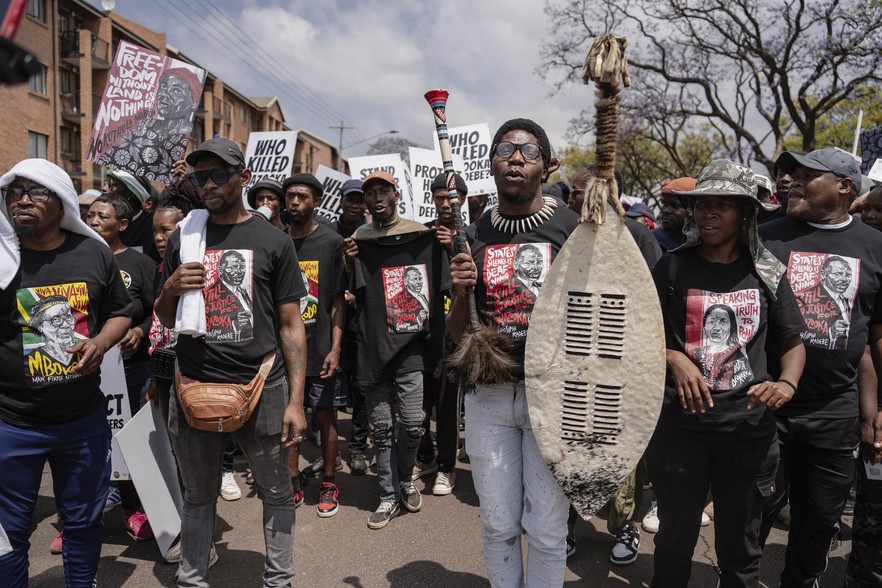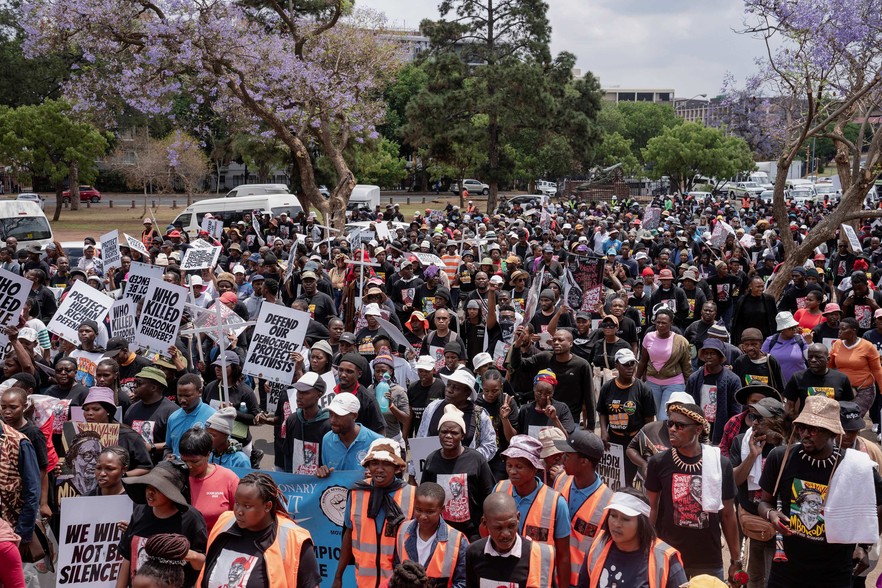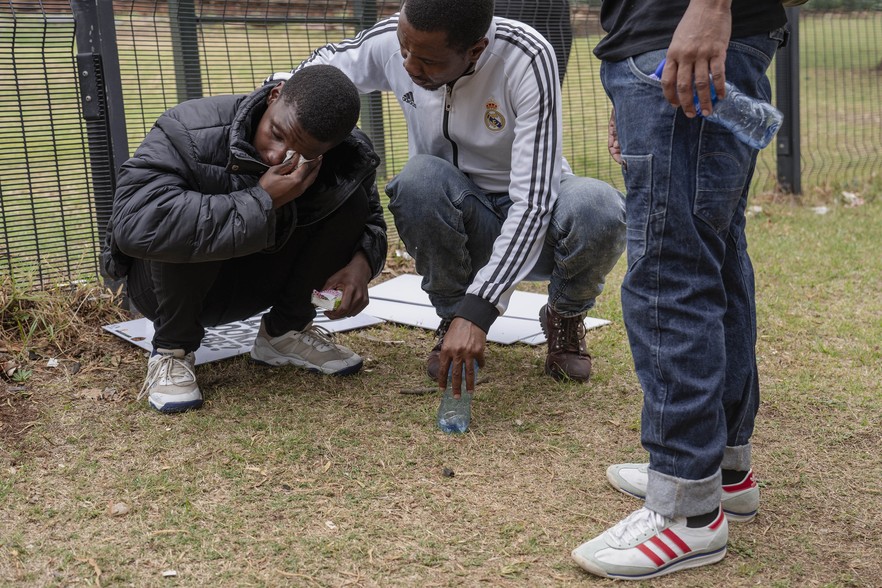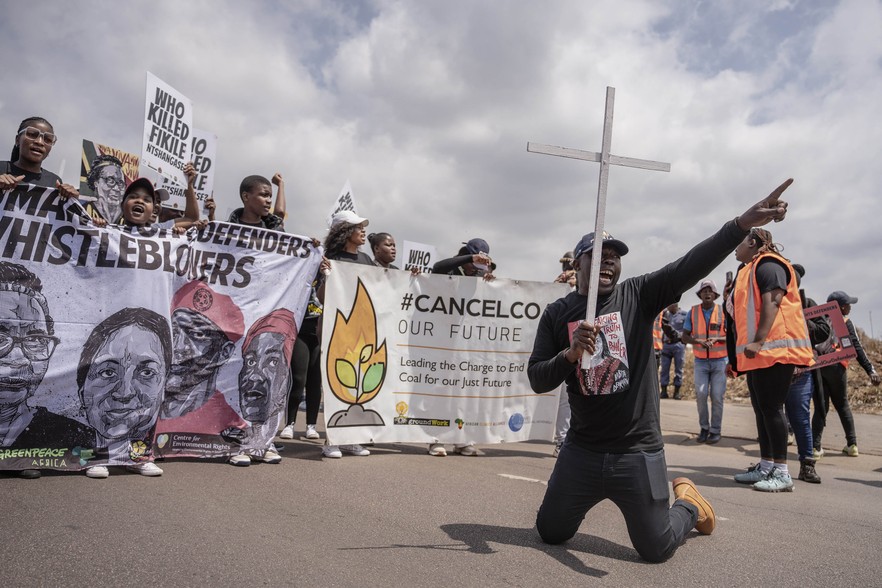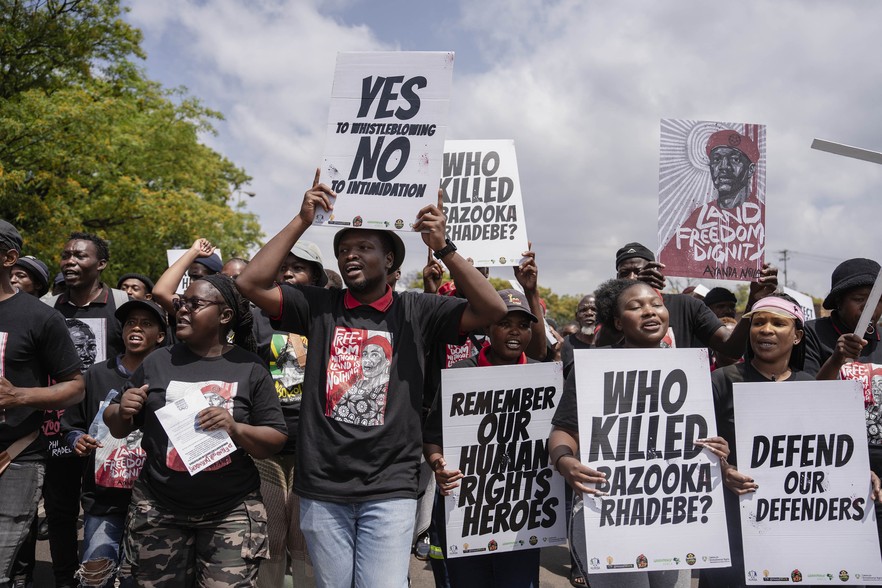Stop the killing and intimidation of whistleblowers, demand activists
Hundreds of people gathered at the Union Buildings four years to the day since environmental activist Fikile Ntshangase was murdered
Activists and supporters from across the country gathered at the Union Buildings in Pretoria to demand an end to the intimidation and killing of human rights activists and whistleblowers. Photos: Ihsaan Haffejee
Hundreds of activists and their supporters from across the country gathered at the Union Buildings in Pretoria on Tuesday to demand an end to the intimidation and killing of human rights activists and whistleblowers.
The group represented a coalition of around 80 NGOs and community-based organisations. The protesters said the government is failing to protect activists.
“We want the government to recognise the significant role that human rights defenders play in our communities, to offer them protection, and to speak out against the intimidation and killing of people who are fighting for their rights enshrined in the Constitution,” said Robby Mokgalaka from groundWork.
Hundreds of people walked to the Union Buildings on Tuesday.
“We also want the police to put together a task team to deal with murder and intimidation cases against human rights defenders,” he said.
The group chose 22 October for the gathering, exactly four years since the murder of environmental activist Fikile Ntshangase on 22 October 2020 at her home in Ephondweni, KwaZulu-Natal.
Four gunmen forced their way into Ntshangase’s house while she was cooking dinner for her family and shot her six times. As yet, no arrests have been made.
Ntshangase was a leading voice in the fight against the expansion of a coal mine near Somkhele.
Buyile Xakaza, the nephew of murdered activist Fikile Ntshangase, broke down while trying to address the crowd. He was inside the house when the gunmen opened fire. He was 13 at the time.
Ntshangase’s daughter, Malungelo Xakaza, said she was told by the police that documents relating to the case had been damaged in a flood.
“It is extremely painful because we see trials on TV and other people get justice. But for us activists, people keep dying year after year and nothing is being done,” said Xakaza.
Cassandra Dorasamy, a campaigner from Amnesty International South Africa, said, “We recognise that the killing of activists are not isolated incidents. We are here to express our solidarity and to call for more legislation to enhance the protection of human rights defenders and for the President to come out and publicly condemn the attacks.”
Protesters say the government and the relevant authorities have failed to protect activists.
Activists pointed to other cases. Bazooka Hadebe, an activist opposing the establishing of a titanium mine in Xolobeni in the Eastern Cape, who was shot eight times. The ongoing case of Babita Deokaran, who was murdered in front of her own home for exposing corruption within the Gauteng Health Department. And that of Jomo Keromeng, who was shot 16 times in his own home in front of his mother and child, while fighting for rights of the people in the Sefikile village of the North-West.
The group’s memorandum was handed over to representatives from the Presidency.
“It is important for the government to recognise that human rights defenders are agents of justice – they sacrifice their lives for the wellbeing of their fellow community members, while performing a responsibility which should be borne by the government – which has a Constitutional obligation to protect the rights of its citizens,” read the memorandum.
People carried posters demanding answers for the murders of activists and whistleblowers.
Support independent journalism
Donate using Payfast

Don't miss out on the latest news
We respect your privacy, and promise we won't spam you.
Next: Concourt showdown on copyright bill
Previous: Disability grant applicant collapses in long queue at SASSA office
© 2024 GroundUp. This article is licensed under a Creative Commons Attribution-NoDerivatives 4.0 International License.
You may republish this article, so long as you credit the authors and GroundUp, and do not change the text. Please include a link back to the original article.
We put an invisible pixel in the article so that we can count traffic to republishers. All analytics tools are solely on our servers. We do not give our logs to any third party. Logs are deleted after two weeks. We do not use any IP address identifying information except to count regional traffic. We are solely interested in counting hits, not tracking users. If you republish, please do not delete the invisible pixel.

